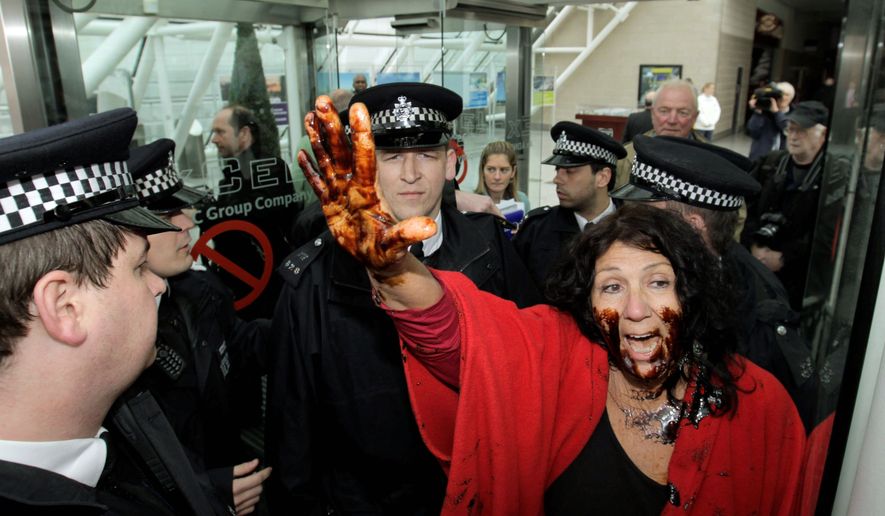Despite angry protesters outside the building, BP promised its first annual general meeting since last year’s devastating Deepwater Horizon oil rig explosion that it would work to earn back trust of shareholders and the public.
“We are a different company from the one that held this event a year ago,” BP Chairman Carl-Henric Svanberg said. “Everything we have done since Deepwater Horizon has had one aim; to win back the trust of shareholders and communities the world over.”
He added that the company was “shocked and saddened” at the explosion, and that its priority has always been “that people who work for us and with us return home safely at the end of every day.”
“The tragic accident and related oil spill in the Gulf of Mexico affected many people and communities,” he said. “BP has not — and will not — shy away from its responsibilities.”
However, the individuals protesting outside the Excel Center in London because of lack of compensation did not seem as confident in the company. Several people were prevented from attempting to enter the meeting, including Diane Wilson, a fourth-generation Texas fisherwoman who was arrested after evading security. Ms. Wilson had covered her face in dark syrup to represent oil and said that the fishing industry had been affected by the oil spill 12 months ago.
“Back in my community, along the Texas Gulf coast, the brown shrimp is half of the income that you would make all year long,” she said in an interview with the BBC. “I think a lot of the shrimpers are concerned … . A lot of the fishing communities, especially in Louisiana, are not touching the shrimp.”
The Louisiana Oystermen Association was represented by its president Byron Encalade, who was also denied entry to the meeting. Mr. Encalade was opposed to the compensation process, claiming that many oystermen had been denied payments or given insufficient payments.
“We’ve not been made whole. Our fishing grounds have been depleted, our oysters are dead, and we’re not receiving the funds we need to support and sustain ourselves,” he told reporters. “BP says they are paying out all this money. Where is it?”
Other protesters included a group opposed to BP’s Canadian tar sands project and workers involved in a dispute at a BP-owned factory in northern England.
In light of these complaints, BP has been running television commercials in the Gulf region featuring residents who praise BP and who think the coast has largely recovered from the oil spill.
BP’s situation is worsening in one regard, however, as Calpers — the biggest U.S. public pension fund — and the Florida State Board of Administration recently announced they would join with smaller religious and ethical funds in voting against the reappointment of William Castell, the head of BP’s safety, ethics and environment assurance committee. The two funds together own about 0.4 percent of BP’s stock.
The April 20 explosion, which killed 11 men and has cost BP $40 billion, also led to then-CEO Tony Hayward losing his job, though with a $17.9 million pension, a $1.6 million buyout and about $13 million in share options.
BP said it will release Friday the official count on resolutions incorporating the votes cast during the meeting Thursday.
• This article is based in part on wire service reports.




Please read our comment policy before commenting.